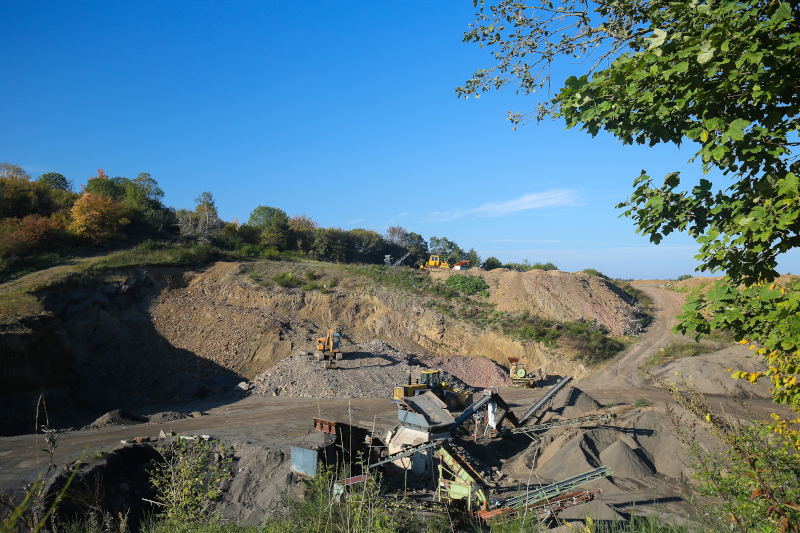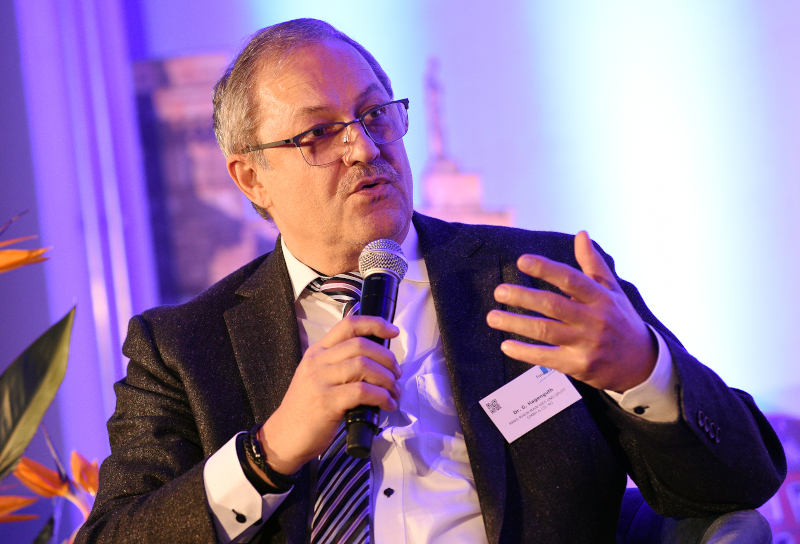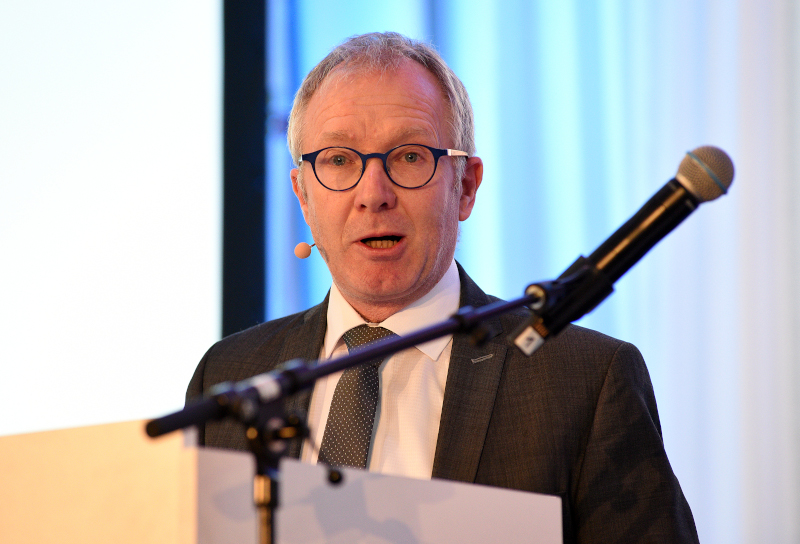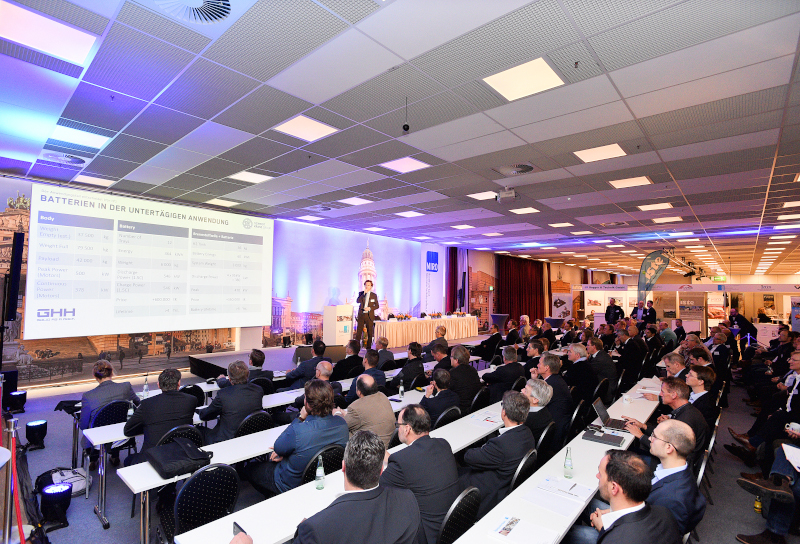
Around 570 participants from aggregates companies, machinery suppliers, government ministries, authorities, NGOs and MEPs gathered at the annual ForumMIRO in Berlin last November to discuss major issues around the supply of domestic mineral raw materials.
The event, hosted by German aggregates industry association MIRO, kicked off with a political discussion that gave attendees the chance to hear from German members of parliament and policymakers on topics, including how to achieve greater use of recycled materials in construction and the importance of the aggregates sector in helping Germany meet its pressing need for more social housing over the next decade.
Problems arising from differences in federal and regional government policies towards the aggregates sector were a major issue. Attendees heard that the ease of gaining permissions for new quarrying and excavating activity varies considerably across Germany, and this is leading to problems in obtaining the raw materials that are much needed for housebuilding in the country.

MIRO’s newly re-elected president Dr Gerd Hagenguth called for more central government involvement in setting out the country’s raw materials strategy. “The government should say ‘we need raw materials’,” he added. “The problem is that the government says one thing and regional authorities say something else. There need to be directives from central government. Germany needs two million in social housing over the next ten years, and therefore we need the raw materials.”
Hagenguth stressed the importance of the minerals industry, and added: “The level of recycling taking place is not enough for the amount of aggregates that are needed in Germany.” He said that new regulations on the re-use of construction waste that are being planned by the Economic Ministry could impact the amount of recycling that takes place. It is proposing to ban the use of construction waste containing dangerous substances such as asbestos. “The Ministry wants to have more recycling, but its rules do not make this possible,” according to Hagenguth. “Sometimes you get the feeling that authorities are against giving permissions.”
Dr Hildegard Wilken, Federal Institute for Geosciences and Natural Resources, said the recycling of raw materials is an important issue in Germany. “But we have enough raw material deposits in Germany [for construction and housebuilding], we just don’t have enough access to it,” said Wilken. “We can employ technical solutions to use lower quality aggregates.”
SPD member of parliament Michael Thews said that recycled aggregates are only used at the moment in road building in Germany, and not in the construction of new buildings. “We need high-quality recycling so this material can be used in modern products for housebuilding,” he said. According to Thews, the period of time it takes to obtain permissions to excavate new sites in Germany has increased from six to 12 years in recent times due to regional authorities being under-staffed and to increasing environmental regulation. He added that the authorities are only just beginning to hire new people.

CDU MP Matthias Heider said that companies should be given incentives for recycling waste.
FDP MP Olaf in der Beek said that there should be less bureaucracy in the granting of permissions and that the process needs to be accelerated. “No one can explain to me why the process takes so long,” he added. In der Beek said there needs to be more cooperation between the Economic and Environment ministries over environmental issues. He proposed that the excavation of areas and the repopulation to restore them to nature should be carried out in cycles. “We are proposing to excavate an area for a certain period of time and then repopulate and restore it for nature,” he added.
Michael Basten, secretary general of the Federal Association of the Building Materials, Rock and Associated Products Industry, called for greater tax incentives for the recycling of materials such as construction waste. He was critical of the proposal for a new tax on building materials such as gravel, which is intended to reduce the use of primary materials and encourage recycling.
“Gravel sells for around €6 per tonne in Germany, so with the proposed new €3 per tonne tax on it there is not much money left,” said Basten. “I don’t think the tax will lead to more recycling and could destroy smaller businesses.”
The cement industry is a major producer of carbon dioxide emissions and has to pay €10 per tonne of CO2 it produces. There are now government plans to extend this tax to other sectors (including gravel/aggregates and construction) for their CO2 emissions. “The government wants to increase the CO2 tax to a maximum of €60 per tonne in future,” said Basten.

Walter Nelles, vice general manager of MIRO presented his report of the association´s work during the delegate assembly. He said that there is a lack of consistency at the European level for standards of aggregates. “We at MIRO are trying to push for better standards. In addition, MIRO also wants to configure the revision of the EU Waste Directive, so that non-hazardous waste could be re-used for backfilling purposes,” he said. “In terms of PR there is a need for better communications, organising political breakfasts and debates with policymakers.”
Jörg-Andreas Krüger, newly elected president of German wildlife group NABU, told forum delegates that there are a lot of biodiversity partnerships between NABU groups and companies at a regional level, including projects on pollination, bees, bats and owls. “The nature discussion is coming more and more into the public arena in terms of sustainability and resource efficiency, and a lot of changes are coming,” he added. “The door is open for dialogue on this issue and the important thing is to be honest. “In terms of sand and gravel pits, we have to look at both sides of the coin – excavating on the one hand and giving nature back on the other. We need these habitats for wildlife, not only after quarrying has finished, but also during the lifetime of the quarry.”
The German aggregates sector is predicted to continue its current steady growth rate over the coming years. The country is the largest producer in Europe, and currently accounts for around 18% (500 million tonnes) of Europe’s annual aggregates production of 3 billion tonnes, according to MIRO, which adds that annual production in Germany is increasing at 2-3% a year.
In 2016 Germany used a total of 563.7 million tonnes of primary raw materials, according to figures from consulting company SST. The largest category of this was sand and gravel (247 million tonnes), followed by natural stone (218 million tonnes).
The total amount of secondary raw materials in 2016 was 101.5 million tonnes, of which by far the largest part was RC (recycled) construction materials at 72.2 million tonnes.
Primary aggregates are predicted to total between 592.8 million tonnes to 615 million tonnes in 2020, and between 555.2 to 650.2 million tonnes by 2035. The SST study estimates that secondary aggregates will total 102.3 million tonnes in 2020, and between 87.7 million tonnes to 98.5 million tonnes by 2035.
Currently, more than 90% of the annual mineral building waste incurred in Germany is recycled in an environmentally-friendly way, according to a survey by the German Institute for Economic Research Berlin and consulting company SST. The survey found this means that only a slight increase in the already high recycling/recovery rate of building waste materials would be possible.

German companies are looking into various possibilities of using alternatives to diesel for powering their aggregates, quarrying and mining operations. Mineral processing and mining technology group Schmidt Kranz has assessed the possible use of hydrogen power, and the company’s CEO Mortimer Glinz said: “It’s cheaper with hydrogen than with diesel, so it’s an option for each company to produce its own hydrogen.” He added however, that there is currently no legislation in Germany that allows the use of hydrogen power.
“For customers this [hydrogen] system is positive and it’s now up to the government to bring in regulations so it can be operated,” said Glinz. After around 20 years of talk but little action around the use of hydrogen power the last year has seen more practical government and political discussion of the idea, according to Carsten Krause, MD of AREVA H2 Gen, which manufactures machines that produce hydrogen from water and electricity. “Electricity can only run for a short time,” Glinz said. “Hydrogen can save for a long time, so it’s good for mining.”
Gelsenwasser, which produces drinking water by excavating sand from quarries and the sea, has built a wind turbine to power this process as the cost of electricity is so expensive. Bernhard Albers, responsible for energy and measurement technology at the company, says that a 100 metre-high turbine (the maximum height for a wind turbine under German law) can produce 750kW of electric energy.
Solar power is also on the radar, and gravel works operator Ossola has built a solar cell that floats on the sea. Two thirds of the energy that this ‘photovoltaic plant’ produces are used to excavate sand and gravel from the sea, and the remaining third is sold to private electricity utilities. “It’s the first time in Germany that a solar energy plant has been built on the sea,” according to company CEO Armin Ossola.








